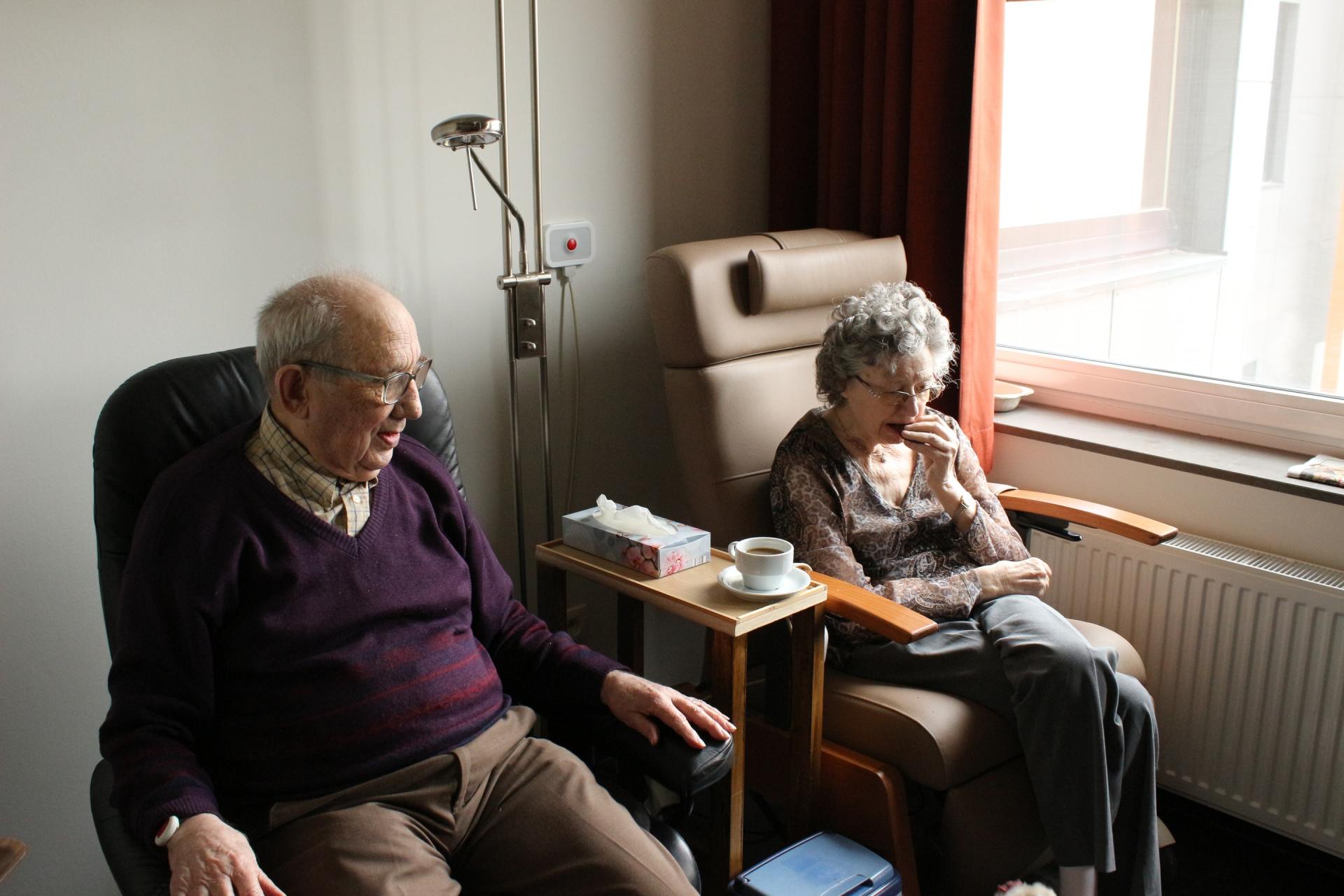Government Benefits
Social Security Administration
Survivor Benefits
Our website is a valuable resource for information about all of Social Security’s programs. There are a number of
things you can do online.
In addition to using our website, you can call us toll-free at 1-800-772-1213. We treat all calls confidentially. We can answer specific questions from 7 a.m. to 7 p.m., Monday through Friday. We can provide information by automated phone service 24 hours a day. (You can use our automated response system to tell us a new address or request a replacement Medicare card.) If you are deaf or hard of hearing, you may call our TTY number,
1-800-325-0778.
We also want to make sure you receive accurate and courteous service. That is why we have a second Social Security representative monitor some telephone calls.
The loss of the family wage earner can be devastating, both emotionally and financially. Social Security helps by providing income for the families of workers who die. In fact, 98 of every 100 children could get benefits if a working parent dies. And Social Security pays more benefits to children than any other federal program. This information gives you an overview of Social Security survivors benefits paid to the spouse and children of a worker who dies. This booklet is not intended to answer all the questions you may have. For more information about Social Security’s survivors program, visit our website or call our toll-free numbers.
“Life insurance” from Social Security
Many people think of Social Security only as a retirement program. But some of the Social Security taxes you pay go toward providing survivors insurance for workers and their families. In fact, the value of the survivors insurance you have under Social Security is probably more than the value of your individual life insurance.
When you die, certain members of your family may be eligible for survivors’ benefits. These include widows, widowers (and divorced widows and widowers), children and dependent parents.
How do I earn survivors insurance?
As you work and pay Social Security taxes, you earn credits toward your Social Security benefits. The number of years you need to work for your family to be eligible for Social Security survivors’ benefits depends on your age when you die. The younger you are, the fewer years you need to work. But no one needs more than 10 years of work to be eligible for any Social Security benefit.
Under a special rule, if you have worked for only one and one-half years in the three years just before your death, benefits can be paid to your children and your spouse who is caring for the children.
Who can get survivors benefits based on your work?
Your widow or widower may be able to receive full benefits at full retirement age. The full retirement age for a survivor is age 66 for people born in 1945-1956 and will gradually increase to age 67 for people born in 1962 or later. Reduced widow or widower benefits can be received as early as age 60. If your surviving spouse is disabled, benefits can begin as early as age 50. For more information on widows, widowers and other survivors, visit
www.socialsecurity.gov/ww&os2.htm.
· Your widow or widower can receive benefits at any age if she or he takes care of your child who is receiving Social Security benefits and younger than age 16 or disabled.
· Your unmarried children who are younger than age 18 (or up to age 19 if they are attending elementary or secondary school full time) also can receive benefits. Your children can get benefits at any age if they were disabled before age 22 and remain disabled. Under certain circumstances, benefits also can be paid to your stepchildren, grandchildren, step-grandchildren or adopted children.
· Your dependent parents can receive benefits if they are age 62 or older. (For your parents to qualify as dependents, you would have had to provide at least one-half of their support.)
Benefits for surviving divorced spouses
If you have been divorced, your former wife or husband who is age 60 or older (50-59 if disabled) can get benefits if your marriage lasted at least 10 years. Your former spouse, however, does not have to meet the age or length-of-marriage rule if he or she is caring for his/her child who is under age 16 or who is disabled and also entitled based on your work. The child must be your former spouse’s natural or legally adopted child.
Benefits paid to you as a surviving divorced spouse who meets the age or disability requirement as a widow or widower won’t affect the benefit rates for other survivors getting benefits on the worker’s record. However, if you are the surviving divorced mother or father who has the worker’s child under age 16 or disabled in your care, your benefit will affect the amount of the benefits of others on the worker’s record.
How much are benefits?
How much your family can get from Social Security depends on your average lifetime earnings. That means the more you have earned, the more their benefits will be. You should check your
Social Security Statement, which is sent each year to every worker age 25 or older. The Statement gives an estimate of survivors’ benefits that could be paid, as well as an estimate of retirement and disability benefits and other important information.
One-time death payment
There is a one-time payment of $255 that can be made when you die if you have worked long enough. This payment can be made only to your spouse or child if they meet certain requirements.
How do I apply for benefits?
If you are not currently getting Social Security benefits
You should apply for survivors benefits promptly because, in some cases, benefits will be paid from the time you apply and not from the time the worker died.
You can apply by telephone or at any Social Security office. We will need certain information, but do not delay applying if you do not have everything. We will help you get what you need. We need either original documents or copies certified by the agency that issued them.
The information we need includes:
Proof of death—either from a funeral home or death certificate; Your Social Security number, as well as the deceased worker’s; Your birth certificate; Your marriage certificate, if you are a widow or widower; Your divorce papers, if you are applying as a divorced widow or widower; Dependent children’s Social Security numbers, if available, and birth certificates; Deceased worker’s W-2 forms or federal self-employment tax return for the most recent year; and The name of your bank and your account number so your benefits can be deposited directly into your account.
If you are already getting Social Security benefits
If you are getting benefits as a wife or husband based on your spouse’s work, when you report the death to us, we will change your payments to survivors benefits. If we need more information, we will contact you.
If you are getting benefits based on your own work, call or visit us, and we will check to see if you can get more money as a widow or widower. If so, you will receive a combination of benefits that equals the higher amount. You will need to complete an application to switch to survivors benefits, and we will need to see your spouse’s death certificate.
How much will I receive?
The benefit amount is based on the earnings of the person who died. The more the worker paid into Social Security, the greater your benefits will be.
Social Security uses the deceased worker’s basic benefit amount and calculates what percentage survivors are entitled to. The percentage depends on the survivors’ ages and relationship to the worker. If the person who died was receiving reduced benefits, your survivor’s benefit is based on that amount. Here are the most typical situations:
A widow or widower, at full retirement age or older, generally receives 100 percent of the worker’s basic benefit amount; A widow or widower, age 60 or older, but under full retirement age, receives about 71-99 percent of the worker’s basic benefit amount; or A widow or widower, any age, with a child younger than age 16, receives 75 percent of the worker’s benefit amount. Children receive 75 percent of the worker’s benefit amount.
Maximum family benefits
There is a limit to the benefits that can be paid to you and other family members each month. The limit varies, but is generally between 150 and 180 percent of the deceased’s benefit amount.
Pensions from work not covered by Social Security
If you get a pension from work where you paid Social Security taxes, that pension will not affect your Social Security benefits. However, if you get a pension from work that was not covered by Social Security— for example, the federal civil service, some state or local government employment or work in a foreign country—your Social Security benefit may be reduced.
For more information, ask for
Government Pension Offset
(Publication No. 05-10007), for government workers who may be eligible for Social Security benefits on the earnings record of a spouse; and
Windfall Elimination Provision
(Publication No. 05-10045), for people who worked in another country or government workers who also are eligible for their own Social Security benefits.
What if I work?
If you work while getting Social Security survivors benefits and are younger than full retirement age, your benefits may be reduced if your earnings exceed certain limits. (The full retirement age was 65 for people born before 1938 but will gradually increase to 67 for people born in 1960 or later.) To find out what the earnings limits are this year and how earnings above those limits reduce your Social Security benefits, ask for
How Work Affects Your Benefits
(Publication No. 05-10069).
There is no earnings limit beginning with the month you reach full retirement age.
Also, your earnings will reduce only your benefits, not the benefits of other family members.
What if I remarry?
Generally, you cannot get widow’s or widower’s benefits if you remarry before age 60. But remarriage after age 60 (or age 50 if you are disabled) will not prevent you from getting benefit payments based on your former spouse’s work. And at age 62 or older, you may get benefits based on your new spouse’s work, if those benefits would be higher.
Right to appeal
If you disagree with a decision made on your claim, you can appeal it. The steps you can take are explained in
The Appeals Process
(Publication No. 05-10041).
You have the right to be represented by an attorney or other qualified person of your choice. More information is in Your
Right To Representation
(Publication No. 05-10075).
For more information call the Mann-Slonaker Funeral Home at 215-679-9589 or log onto www.ssa.gov.
VETERANS DEATH BENEFITS
Service members who die on active duty and veterans discharged under conditions other than dishonorable are eligible for burial in a VA national cemetery. Spouses and minor children of service members and eligible veterans also may be buried in a national cemetery. Grave sites in national cemeteries cannot be reserved. The funeral director or the next of kin makes interment arrangements for an eligible veteran or dependent at the time of need.Upon request, the Veteran's Administration furnishes headstones or markers at no charge for the grave of an eligible veteran or service member that dies while on active duty. Flat bronze, flat or upright granite or marble markers are available. A copy of the veterans discharge, DD2-14, is required at the time of application and application must be made within one year of the death.
Please follow the links below for additional information:
Below is a list of agency numbers and address to help in your time of need:



